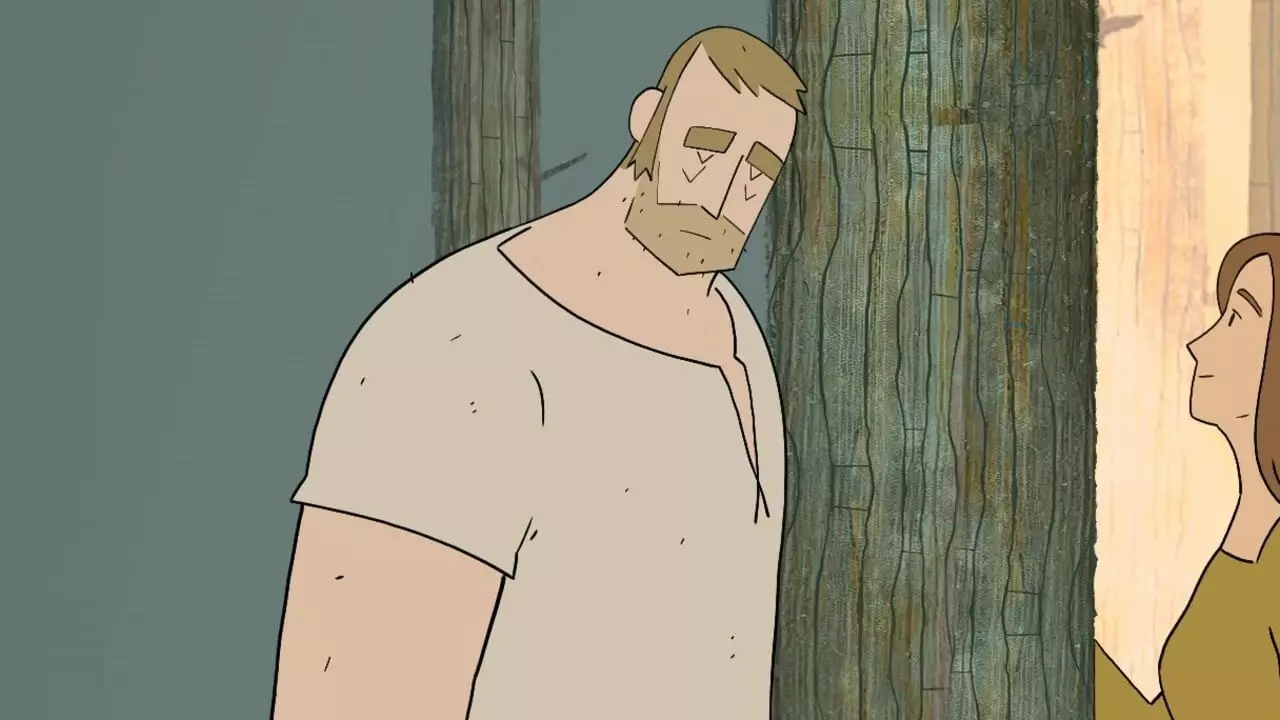The term “game” often conjures images of lighthearted escapades, moments of unrestrained laughter among friends, or even the intense competition witnessed in professional sports. This multifaceted definition becomes particularly intriguing when we explore the realm of video games, where titles can span a broad emotional spectrum. Among those that tread the delicate line between play and poignancy is the indie game **Pine**. With the subtitle *A Story of Loss*, Pine endeavors to illustrate themes of grief and resilience. However, it deviates from conventional gameplay, opting instead for a personal journey that can ultimately evoke mixed responses from players.
Pine presents us with an unnamed protagonist who lives a solitary life in a forest clearing, engaging in mundane tasks such as chopping wood and tending to a small vegetable garden. This monotonous existence is punctuated only by his creation of wooden statuettes representing the woman he has lost. Immediately, the narrative immerses players in a sorrowful world, far removed from the traditional gaming experience filled with action-packed sequences or extravagant worlds. Instead, the game capitalizes on the simplicity of the protagonist’s life, intertwining mundane activities with profound emotional weight.
This simplicity, however, can lead to a sense of desolation. The gameplay mechanics, which prioritize touch controls, may feel lackluster and repetitive. Activities like chopping wood and planting seeds become increasingly drawn-out, inviting players to reflect on the metaphorical weight of the tasks at hand. Yet, it raises an interesting query: can a game be too simple to effectively convey its message? For some, the repetitive nature of these interactions might evoke feelings of tedium, while for others, it may reflect the protagonist’s own struggles, urging them to confront the bleakness attached to enduring loss.
Despite its potentially jarring interactions, Pine compensates with its artistic visuals and atmospheric sound design. The game’s aesthetics pull the player into a beautifully-rendered world that complements the emotional narrative. The graphics exude a sense of tranquility, yet this does not overshadow the melancholic undertones. The soundscape, with its serene compositions that swell and fade, enhances the experience, tapping into the emotional core of the protagonist’s struggle.
Even as the visuals and sounds create a captivating ambiance, one might argue that they occasionally serve to heighten the game’s underlying sadness. While the interplay of color and sound can spark moments of introspection, it is essential for players to approach Pine with the right mindset; this is a title deeply rooted in themes of sorrow, making it imperative to embrace rather than evade these feelings.
A Reflection on Grief
The narrative arc of Pine insists on contemplation rather than action, encouraging players to experience the protagonist’s plights in real-time. This leads to moments where gameplay feels less like a challenge and more like a passive observation. As the story unfolds, players are invited to engage with the darker aspects of human emotion, presenting a vision of grief that does not shy away from its rawness. However, this aspect might feel disconnected for some, who might misinterpret the game’s message as a call to forget rather than process and heal.
The brevity of the gameplay—clocking in at only a couple of hours—adds a layer of introspective urgency, yet at times this fleeting duration can leave players craving a deeper exploration. For those eager to delve into the depths of loss, Pine offers a glimpse into the resilience of the human spirit, albeit one that may feel starkly incomplete for others.
Pine embodies a unique niche within the gaming landscape: a meditation on loss wrapped in the guise of a game. Its visuals, sound design, and narrative create an immersive experience that invites players to slow down and reflect. However, its simplistic gameplay and themes of melancholy might alienate those seeking traditional gaming thrills. Ultimately, whether Pine is a profound exploration of grief or merely a tedious gardening simulator will depend on individual perspectives. For players willing to navigate its emotional terrain, Pine stands as a testament to the complexity of human experience and the often-painful journey of moving forward.

